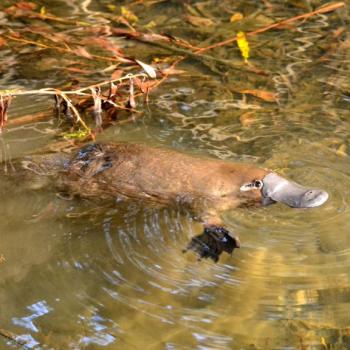
We need to maximize human flourishing and minimize human suffering. So says distinguished medical ethicist, Robert Lyman Potter (M.D., Ph.D.), who has served as my family’s medical consultant since my adult son Christopher endured a catastrophic brain injury in January 2021. This post is about the need to maximize human flourishing and minimize needless suffering in various areas of life, while welcoming successful failures that lead to growth. Special consideration will be given to recovery from traumatic brain injuries and gains made from failed spaceship rocket launches.
I interviewed Dr. Potter several days ago as part of a conference on human flourishing I am hosting. He repeated that statement about maximizing human flourishing and minimizing human suffering during the proceedings. In view of my family ordeal, I said in response that there are some forms of suffering that are important. He concurred when I said that we should minimize needless human suffering.
Case in point. Weeks following Christopher’s brain injury, a hospitalist expressed concern about Christopher enduring pain. Dr. Potter responded and assured the doctor that at that time Christopher did not experience pain since he was not yet conscious. Within a few months, Christopher had regained minimal consciousness and so could experience some measure of pain. I would rather Christopher be conscious and experience some level of pain than that Christopher never regained consciousness.
Christopher endures pain whenever the respiratory therapists do deep-suctioning of his lungs. Fortunately, they do not have to suction him often since my son has very strong lungs and a robust cough. I have witnessed my son clear his lungs and launch secretions across the room. Perhaps in view of SpaceX’s recent struggle to launch its spaceship rocket successfully into orbit, Elon Musk could benefit from hooking up SpaceX’s next rocket launch to Christopher’s chest!
No wonder I hang NASA pictures of outer space in my son’s room. A NASA scientist of whom Christopher spoke with admiration before TBI, and who prays for him now, gave the pictures to me. I’m sure this scientist would be pleased to know they hang high on the wall in Christopher’s room as I’m preparing him for blastoff.
Christopher cannot ever hope to blast off without enduring some level of discomfort and pain when the RTs suction him as well as do oral hygiene care. It is critically important to his health that they clean his mouth as best as they can. My son appears to hate the taste of the solution and it also tends to sting. He grimaces and groans in response.
Christopher does not take kindly to when his nurses administer his eye drops either. Friday morning, one of the nurses (the one my wife calls Christopher’s “Second Mom” because of her deeply empathic and exceptionally alert care) informed Christopher that it was time for his eye drops. Whenever she informs him about what she is about to do, he closes his eyes and turns away. The eye drops irritate him. Friday, he grumbled for the first time when she announced her intention to administer the solution. She applauded Christopher for grumbling. Why? Because she’ll celebrate any effort he makes to communicate, and I mean any.
Later, the nurse reported the incident to me. I said in response that it is one of the only times in life I would welcome my son grumbling. We laughed. Yes, indeed. We would rather Christopher grumble, or utter vulgarities, as he did not too long ago, than make no sound at all. While he seemingly lost his ability to speak after enduring TBI, recently staff have witnessed Christopher saying a few words on occasion. Almost any sound from Christopher’s vocal cords is a welcome signal and by no means meaningless to our ears, even if it entails some measure of suffering.
My son experiences some measure of pain when I do passive range of motion exercises for him. I apologize before and after stretching his feet, and right hand. For example, he grimaces and pulls his arms and hands toward his face when I pull back on his toes and stretch the arches of his feet. His feet have dropped considerably since the TBI. I will continue to stretch his feet whose muscles and joints are often rigid in hopes of increasing range of motion.
While I wish my son did not endure pain, it is essential that I stretch his feet and other stiff limbs. Moreover, his hand and arm motions and grimaces during these stretching sessions inform me that he is feeling and responding to pain. He is not in a vegetative state. Christopher is alive, conscious, and is able to move and flex many of his limbs. Perhaps the pain clinic doctor can increase the baclofen pump dosage when his staff refills the pump this Tuesday to lessen the stiffness in trouble spots. Rigorous stretching, though sometimes painful, is far better than the extreme alternative—rigor mortis. Even better is when the baclofen assists with reducing the pain. Best yet is if these various efforts someday lead to Christopher walking again.
Some measure of pain and responsiveness to it is helpful in that it reveals consciousness. It also alerts Christopher and his caregivers that we must be careful not to go too far and cause harm to his body, mind, and emotions as we go in pursuit of meaningful recovery.
The whole point of minimizing needless suffering is to maximize human flourishing and experience meaningful recovery. To that end, we were relieved to find that his recent lab work shows Christopher is receiving the necessary nutrition through his gastric feeding tube to sustain him. We pray that someday he won’t need the feeding tube, or the trach tube for breathing, or the speaking valve to stimulate speech, or the wheelchair and Hoyer lift, or the surgically implanted baclofen pump. For now, they are essential in hopes of blast off. We do everything possible and pray in pursuit of maximizing flourishing for my son to send him into orbit.
The old saying is true: no pain, no gain. Or more precisely, needless pain is no gain. We will keep on pushing and pulling, lifting up prayers and singing, talking to him and advocating, no matter how painful and exhausting it is to us, to assist with Christopher’s emergence and launch from his bed.
Regardless of what one makes of Elon Musk’s Twitter takeover, many will find his “successful failure” formula to developing spaceship rocket technology inspiring and invigorating. Even though his most recent rocket exploded shortly after takeoff, he and his team learned a great deal from the “successful failure” to maximize development of future efforts. Yes, the failure was painful. But the pain of failure was not meaningless or needless. It was not a total waste, no matter how costly. In fact, those who support SpaceX’s approach to research and development and their ultimate aims for space travel believe the benefits far outweigh the costs. It spurs future growth toward a successful launch of a spaceship rocket into space for the sake of intergalactic research, travel, and commerce.
Musk and SpaceX’s “successful failure” formula reminds me of Thomas Edison’s responses to his assistant and a reporter. The assistant lamented two-thousand failed attempts at finding the right filament to make the light bulb: “All our work is in vain. We have learned nothing.” Edison replied: “Oh, we have come a long way and we have learned a lot. We now know that there are two thousand elements which we cannot use to make a good light bulb.” Similarly, when a reporter quipped about his failures with inventing the light bulb, “How did it feel to fail 1,000 times?” Edison retorted, “I didn’t fail 1,000 times. The light bulb was an invention with 1,000 steps.”
Dr. Potter has indicated to me that our dogged persistence in advocacy through thick and thin for over two years has helped Christopher become more stable and increase the prospects of meaningful recovery. Just think if we had not. Christopher might not be here now. He might not have achieved any level of consciousness, smiled, moved parts of his body that we were told would never move again, responded to prompts, and spoken. We would not come to the realization that there were more remaining viable parts of the brain than the MRIs revealed.
Just think what awaits Christopher, as we keep going. Who else might keep going amid tragic circumstances in view of our efforts to maximize human flourishing and minimize human suffering? To some extent, I believe we are already bucking the trend of self-fulfilling prophecy attitudes and statistics in various areas of life. We are proceeding according to reason in doing so. For example, according to one neurologist caregiver, the statistics are inordinately weighted toward those situations that involved people tragically giving up way too early on TBI patients.
Christopher, my family, and I are not wasting our suffering or pain. Our work is not in vain. Meaningful recovery requires at the very least 1,000 or 2,000 steps to take and space launches to make in the effort to get there. Even the grimaces, grumbling, groans, and grinding halt to movements in response to prompts serve a purpose. They are launching pads for more new memory grooves, more expressions, more sounds, more words, more movements, more resilience, and more emergence. We maximize human flourishing and minimize human suffering, seeking to make good use of necessary growing pains and successful failures along the way.














